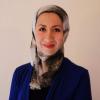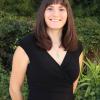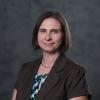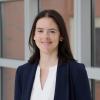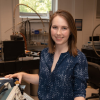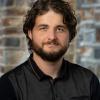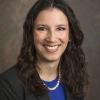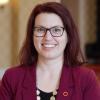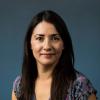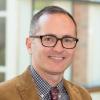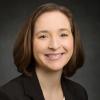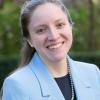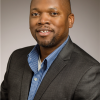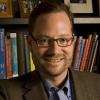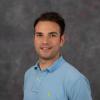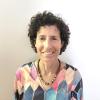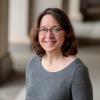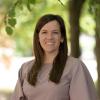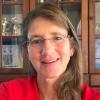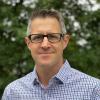Session Chairs
Session Chairs
Session of Chairs
Theme 1: Update on strategies for enhanced learning environments and evidence-based practices in undergraduate programs.
|
Click here to Download Summary for Theme 1 Session 1: The evolution of teaching and learning styles in the post‐pandemic era Session Chairs |
|
|
Sally Shady, Stevens Institute of Technology Biography:-Dr. Sally Shady is a Teaching Associate Professor and Associate Chair of Undergraduate Studies in the Biomedical Engineering Department at Stevens Institute of Technology. She worked in industry for several years designing and developing drug delivery devices. Her current interests are in developing pediatric medical devices. She currently teaches senior design, biomaterials and natural polymers in medicine for the biomedical engineering program and strives to implement teaching pedagogy to engage, inspire and challenge students. |
Mahendra Kavdia, Wayne State University Biography:- Dr. Mahendra Kavdia is Undergraduate Program Chair of Biomedical Engineering at Wayne State University. Dr. Kavdia developed and taught Biomedical Transport, Quantitative Physiology, Cardiovascular Systems Modeling and Computational Methods in Biomedical Engineering. Dr. Kavdia’ research focuses on computational modeling and vascular systems biology to understand the role of oxidative stress in physiological conditions, and cardiovascular and neurovascular diseases. He is a recipient of the Arthur C. Guyton award for excellence in integrative physiology and medicine.
|
|
Click here to Download Summary for Theme 1 Session 2: Effective learning and teaching strategies in small and large classrooms. (Adopting instructional approaches in BME‐specific courses such as: Introduction to BME, Physiology, Biomechanics and Biotransport) Session Chairs |
|
|
Christine King, University of California Irvine Biography:- Dr. Christine King is an Associate Professor of Teaching in the Department of Biomedical Engineering at the University of California Irvine, director of the BioENGINE program, and concentration director of the Master's of Engineering Biomedical Engineering program. Her research focuses on engineering education research for design-build-test courses, virtual reality clinical immersion, and women's health medical devices. |
Laura Christian, Georgia Institute of Technology Biography:- Laura Christian is a Lecturer in Biomedical Engineering at Georgia Institute of Technology. She has a Ph.D. in Cell and Molecular Biology from The University of Texas at Austin and has held teaching faculty positions in both biological sciences and engineering. She was a 2022-2023 Georgia Governor’s Teaching Fellow and received a 2023 Engineering Unleashed Fellowship. Her favorite teaching activity is Problem Solving Studio. |
|
Click here to Download Summary for Theme 1 Session 3: Incorporating DEI into instruction and interpreting the new ABET criteria. Session Chairs |
|
|
Jennifer Leight, Ohio State University Biography:- Jennifer Leight is a Professional Practice Associate Professor and Associate Director for Undergraduate Education in the Biomedical Engineering Department at the Ohio State University. She is passionate about supporting her students to develop DEIJ-related skills for their future career success and faculty professional development in this area. Reflective of her passion for teaching, she has received several awards including the David C. McCarthy Engineering Teaching Award in 2022 and the Herman R. Weed Excellence in Teaching Award in 2018. |
Alyssa Taylor Amos, University of California San Diego Biography:- Dr. Alyssa Taylor is an Associate Teaching Professor in the Shu Chien-Gene Lay Department of Bioengineering at the University of California San Diego. Dr. Taylor has over thirteen years of teaching experience across bioengineering introductory, laboratory, and design courses. |
|
Click here to Download Summary for Theme 1 Session 4: Strategies to incorporate ChatGPT/AI in BME curriculum Session Chairs |
|
|
Alexandra Werth, Cornell University Biography:- Dr. Alexandra Werth, is a discipline-based education researcher and Assistant Professor in the Meinig School of Biomedical Engineering at Cornell University. Her research focuses on improving engineering education, specifically aimed at advancing the field by developing novel research‑based assessment tools and investigating the efficacy of authentic learning environments. Werth earned her Ph.D. in Electrical and Computer Engineering from Princeton University (2019), where she worked on the development of a non-invasive, quantum cascade laser glucose monitor for diabetes management. Subsequently she conducted postdoctoral research in physics education research at the University of Colorado Boulder, where she developed the first reported large-enrollment, introductory physics course-based research experience. |
David A. Rubenstein, Stony Brook University Biography:- Dr. David Rubenstein is an Associate Professor of Biomedical Engineering and Associate Dean of Academic and Student Affairs (The Graduate School) at Stony Brook University. He has recent interests in the development of novel pedagogical tools and increasing the awareness of diverse perspectives within the classroom at both the undergraduate and graduate levels. Dr. Rubenstein has nearly 20 years of teaching experience in various biomedical engineering courses, including bioengineering mechanics, biofluid dynamics, biomaterials, and engineering mathematics. Along with Dr. W. Yin and Dr. M. Frame, Dr. Rubenstein has published three editions of a biofluid mechanics textbook, which is focused on illustrating the broad engineering and biological concepts needed in this field. |
|
Click here to Download Summary for Theme 1 Session 5: Approaches and innovative techniques to teach senior design Session Chairs |
|
|
Rebecca Scott, University of Oklahoma Biography:- Rebecca Scott is a teaching-focused faculty and Chair of Undergraduate studies at the University of Oklahoma. She teaches first year-to-senior design courses, a sophomore- level BME fundamentals course, and a tissue engineering elective course. Her research focuses on assessing and improving students’ understanding of essential skills and learning within BME education. |
Kenneth Barbee, Drexel University Biography:- Kenneth Barbee is a Professor and Senior Associate Dean in the School of Biomedical Engineering, Science and Health Systems at Drexel University. He has been intimately involved with the Senior Design program in Biomedical Engineering at Drexel since its inception 25 years ago. He was previously the PI on an NIH R25 Educational Grant to enhance the design program in Biomedical Engineering featuring a clinical immersion experience in the Junior year during which the participating students generate ideas for a Senior Design project the following year. He is the PI of the Drexel Coulter Translational Research Partnership program that supports the commercialization of medical technologies developed at Drexel. The program provides training in the commercialization process to faculty and students, and we are in the process of incorporating commercialization principles into the |
|
Click here to Down load Summary for Theme 1 Session 6: Opportunities for experiential learning in the BME curriculum Session Chairs |
|
|
Alexander Guevel, Wake Forest University Biography:- As an early-career assistant professor in biomedical engineering at Wake Forest University, Dr Guevel focuses on developing biomedical engineering solutions to make health systems, such as hospitals, more resilient and sustainable. This involves integrating circular economy concepts and low-tech solutions that promote health equity in underserved communities. His research inspires his teaching in providing real-world case studies on how engineering can support health equity and social justice. |
Rob Macleod, University of Utah Biography:- Rob MacLeod was trained in Canada and Austria in physics, electrical engineering, and physiology & biophysics and has been on the faculty at the University of Utah since 1991. He now is a full professor of Biomedical Engineering and Cardiovascular Medicine at the University of Utah. Dr. MacLeod has a deep commitment to education, training, and mentorship and for the past 16 years has been Vice Chair and Director of the Undergraduate program in Biomedical Engineering. He serves on numerous committees around the practice of teaching and learning. His most recent projects include a new University of Utah initiative in Responsible AI, where he will co-direct the working group on AI in teaching and learning.
|
Theme 2: Resourcing collaboration and exchange for faculty and student success.
|
Click here to Download Summary for Theme 2 Session 1: Student engagement, participation, and attendance Session Chairs |
|
|
Joshua Kays, Boston University Biography:- Joshua Kays is a Lecturer in Biomedical Engineering at Boston University. He has taught a wide range of undergraduate and graduate classes including thermodynamics, probability/statistics for engineers, nanomedicine, polymer and soft matter physics, and medical device design. His research experience is in BME applications of quantum dots and polymer nanoparticles, and has worked in both academia and in pharmaceutical industry settings. He is passionate about developing his students’ critical thinking skills and independency through any subject matter. |
Sarah Rooney, University of Delaware Biography:- As a teaching-focused faculty member and Associate Chair of Undergraduate Studies, Dr. Rooney’s efforts center around developing and teaching courses in the undergraduate BME curriculum and facilitating continuous improvement of the program. She teaches biomechanics, medical devices and design courses spanning sophomore to senior years, and a technical elective course that bridges engineering and exercise physiology. Dr. Rooney is PI of an NIH R25 grant to develop a sophomore medical devices course that integrates industry and clinical connections. |
|
Click here to Download Summary for Theme 2 Session 2: Academic integrity and use of ChatGPT in BME curricula (focus on communicating restrictions and conveying when crossing into academic integrity violations ‐ role of faculty in integrity investigations) Session Chairs |
|
|
Reem Khojah, University of California San Diego Biography:- Reem Khojah serves as an Assistant Teaching Professor in the Bioengineering Department at the University of California, San Diego. Specializing in educational research, the role is dedicated to advancing AI and cloud-based automated biomedical research lab technologies for accessible undergraduate research. Additional projects include a data-driven pre/post lecture assessment to optimize teaching effectiveness in bioengineering education and the development of AI-proof assignments. |
Kelly W. Broadhead, University of Utah Biography:- Kellly Broadhead is an Associate Professor (Lecturing) and Director of Undergraduate Operations in the Department of Biomedical Engineering, University of Utah. His primary teaching responsibilities include the bioDesign (senior capstone) and bioInnovate (MS project) programs that focus on student teams following the design control process (21 CFR 820.30) as they design and develop new medical devices. He has also been extensively involved in leading the ABET accreditation activities of the department and serves as a member of the University of Utah Assessment Advisory Board. |
|
Click here to Download Summary for Theme 2 Session 3: Promoting instructional and TT faculty success, professional training, and individual mentorship Session Chairs |
|
|
Julie Hasenwinkel, Syracuse University Biography:- Julie Hasenwinkel is the Laura J. and L. Douglas Meredith Professor of Teaching Excellence and Department Chair Biomedical and Chemical Engineering. Prof. Hasenwinkel’s research focused on translational polymeric biomaterials for orthopedics and nerve regeneration in vitro and in vivo evaluation of acrylic bone cements, nanoparticle drug delivery systems to treat spinal cord injury, and micropatterned, mechanically-active hydrogels and new techniques for studying spinal cord injury in vivo and in vitro. More recently, Prof. Hasenwinkel is also known for her research studying the link between faculty development in innovative pedagogy and advising practices and subsequent effects on student attitudes toward persistence and retention rates. |
Jenny Amos, University of Illinois Urbana-Champaign Biography:- Jenny Amos, PhD, is. Teaching Professor in Bioengineering and Laura Hahn Faculty Fellow at the University of Illinois Urbana-Champaign; she is a fellow of BMES and AIMBE and the Chair of the BMES Education Committee. Amos’s research emphasizes the need for robust assessment practices to understand students’ processes of learning in BME Education and Medical Education. |
|
Click here to Download Summary for Theme 2 Session 4: Models for regional programs to work together more closely, including shared resources and collaborative teaching Session Chairs |
|
|
Miiri Kotche, University of Illinois Chicago Biography:- Dr. Miiri Kotche is the Richard and Loan Hill Clinical Professor in the Department of Biomedical Engineering and Associate Dean for Undergraduate Affairs in the College of Engineering at the University of Illinois Chicago. Miiri’s efforts focus on the scholarship of engineering education and providing real-world experiences for students in the classroom, through hands-on project work, interdisciplinary programming and summer immersion. Miiri is also the Director of the Innovation Medicine program, a co-curricular program for medical students interested in the intersection of technology development, innovation and health care delivery. |
Pat Alford, University of Minnesota Twin Cities Biography:- Dr Alford is an Associate Professor and Director of Undergraduate Studies in Biomedical Engineering at the University of Minnesota. His research is focused on mechanobiology of growth, remodeling, and injury. |
|
Click here to Download Summary for Theme 2 Session 5: Student support: Mental health and sense of belonging while maintaining educational rigor and curricular success Session Chairs |
|
|
Karin Jensen, University of Michigan Biography:- Karin Jensen, Ph.D. (she/her) is an Assistant Professor in the Department of Biomedical Engineering and core faculty member in the Engineering Education Research program at the University of Michigan. Her research interests include well-being, engineering career pathways, and engagement of engineering faculty in engineering education research. |
Kristen Labazzo, Rutgers University Biography:- Dr. Labazzo is an Associate Teaching Professor of Biomedical Engineering at Rutgers University, and the program Undergraduate Director. Prior to Rutgers, Dr. Labazzo worked for 10 years at Celgene Cellular Therapeutics developing biomaterials and stem cell treatments derived from human placenta. At Rutgers, Dr. Labazzo is passionate about working with disabled populations and leads a capstone program focused on assistive technology. Inspired by the mental health crisis post-pandemic, Dr. Labazzo is currently pursuing her master’s in clinical mental health and working towards becoming a licensed professional counselor. |
|
Click here to Download Summary for Theme 2 Session 6: Promotion and acceptance of inclusion; University training to departmental engagement – student advising to faculty mentorship Session Chairs |
|
|
Julian Lippmann, University of Miami Julian Lippmann has been a Lecturer in the Department of Biomedical Engineering at the University of Miami since 2019, where he teaches Biomedical Design, Biofluid Mechanics, and Solid Modeling with SolidWorks. Prior to this, he was an Assistant Teaching and Research Professor at the University at Buffalo, SUNY in the Department of Biomedical Engineering for 9 years.He holds a Ph.D., M.S., and B.S. in Mechanical Engineering from the University of California, Berkeley where he focused on the design and manufacture of MEMS in both silicon and polymers.He is currently interested in innovative, student-centered teaching methods including problem-based and flipping teaching.
|
Lauren Heckelman, Columbia University Biography:- Lauren Heckelman is a Lecturer in the Discipline of Biomedical Engineering at Columbia University. She teaches the department's junior-level laboratory courses and two-semester senior capstone design course. Before joining Columbia, Heckelman received her B.S.E., M.S., and Ph.D. in biomedical engineering at Duke University. |
Theme 3: The Future of Graduate Programs in Biomedical Engineering
|
Click here to Download Summary for Theme 3 Session 1: Structures for interdisciplinary co‐mentored research training that bridges biology, engineering, computer and data science chemistry, and medicine Session Chairs |
|
|
David Schmidtke, University of Texas Dallas Biography:- David W. Schmidtke is a Professor of Bioengineering at the University of Texas at Dallas and serves as the Associate Head of Bioengineering for Joint Graduate Programs. He previously served as the Associate Head of Bioengineering for Undergraduate Studies at UT-Dallas (2019-2023) and was Director of the University of Oklahoma Bioengineering Center (OUBC) and Graduate Program from 2010-2014 before joining UT-Dallas. Dr. Schmidtke’s research focuses on the fabrication of novel materials & devices (e.g. biosensors, microfluidics) for biological and medical applications. |
Michael Miga, Vanderbilt University Biography:- Michael I. Miga, Ph.D. received his Ph.D. from Dartmouth College specializing in biomedical engineering. He joined the faculty in the Department of Biomedical Engineering at Vanderbilt University in 2001 and is the Harvie Branscomb Professor at Vanderbilt. He is a Professor of Biomedical Engineering, Computer Science, Radiology and Radiological Sciences, Neurological Surgery, and Otolaryngology – Head and Neck Surgery. He is director of the Biomedical Modeling Laboratory (https://migalab.org) , and co-founder of the Vanderbilt Institute for Surgery and Engineering (VISE, www.vanderbilt.edu/vise). He has been PI on several NIH grants concerned with image-guided brain, liver, kidney, and breast surgery. He is also PI and Director of a novel NIH T32 training program entitled, ‘Training Program for Innovative Engineering Research in Surgery and Intervention’ that is focused on clinical immersion and the creation of translational technologies for treatment and discovery in surgery and intervention. He also was a co-inventor of the first FDA cleared image guided liver surgery system. Dr. Miga is an AIMBE and SPIE Fellow and has served as a charter member of the Biomedical Imaging Technology (BMIT-B) and the Bioengineering, Technology, and Surgical Sciences (BTSS) Study Sections at NIH. His research interests are in computational modeling, inverse problems/computational imaging, soft-tissue biomechanics/biotransport, technology-guided therapy, image/imaging-guided surgery and intervention, and data-driven procedural medicine.
|
|
Click here to Download Summary for Theme 3 Session 2: Preparing students for academic post‐PhD careers in the AI era Session Chairs |
|
|
Chris Geiger, University of Florida Biography:- Chris Geiger is an Instructional Associate Professor in the J. Crayton Pruitt Family Department of Biomedical Engineering at the University of Florida, where he teaches the Senior Capstone sequence and Biomedical Transport Phenomena. His educational research areas of interest include information literacy and student self-efficacy. |
Wawosz Dobrucki, University of Illinois Bioghraphy:- Dr. Wawrzyniec (Wawosz) Lawrence Dobrucki currently holds the position of Associate Professor and Associate Head for Graduate Programs in the Department of Bioengineering and Carle-Illinois College of Medicine at the University of Illinois at Urbana-Champaign. At the Beckman Institute for Advanced Science and Technology, Dr. Dobrucki leads the Experimental Molecular Imaging Laboratory (EMIL). Additionally, he is affiliated with the Medical University of Gdansk in Poland, where he is a scientific consultant for Biobanking and Biomolecular Resources Research Infrastructure Poland. Dr. Dobrucki’s area of expertise lies in preclinical molecular imaging, with a focus on developing innovative targeted multimodal imaging strategies for noninvasive assessment of tissue microenvironments and various biological processes in vivo. These processes include therapeutic neovascularization, atherosclerosis, neoplastic progression, and evaluating cancer responses to experimental therapies. Dr. Dobrucki is actively involved in translational bioimaging and has over 20 years of experience developing and validating novel SPECT/PET radiotracers and multifunctional contrast agents. Dr. Dobrucki earned his Ph.D. in Chemistry from Ohio University in 2003. Prior to joining the Department of Bioengineering at the University of Illinois at Urbana-Champaign in 2013, he held positions as a junior faculty member at Yale University School of Medicine and Senior Research Scientist at the Beckman Institute, where he directed the Molecular Imaging Laboratory (MIL) within the Biomedical Imaging Center (BIC). |
|
Click here to Download Summary for Theme 3 Session 3: Integration of entrepreneurship and commercialization training in graduate BME curricula Session Chairs |
|
|
Katie Reuther, University of Pennsylvania Biography:- Katie Reuther is a Practice Associate Professor in Bioengineering at the University of Pennsylvania and the Executive Director for the Center for Health, Technologies, and Devices (Penn Health-Tech), overseeing the development of novel medical devices and health technologies. With prior experience as a Senior Lecturer in Design, Innovation, and Entrepreneurship at Columbia University and co-founder of a medical device start-up, she brings extensive expertise in fostering innovation and entrepreneurship and has advised 100s of student and faculty teams and start-ups. Reuther holds degrees from the University of Pennsylvania (PhD in Bioengineering), Columbia University (Executive MBA), and The College of New Jersey (BS in Biomedical Engineering), and actively supports several National Institute of Health (NIH) programs focused on translation and commercialization, including I-Corps at NIH and Concept to Clinic: Commercializing Innovation (C3i). |
Joe Bradley, University of Illinois at Urbana-Champaign Biography:- Joe Bradley is a Clinical Assistant Professor in Bioengineering in the Grainger College of Engineering, a Health Innovation Professor and the Director of Engineering Education and Entrepreneurship in the Carle Illinois College of Medicine. His research focuses primarily on engineering design/Bio Design collaboration on transdisciplinary teams. He is also a co-founder of Sun Buckets, Inc. |
|
Click here to Download Summary for Theme 3 Session 4: Industry and multi‐institution interdisciplinary partnerships and their role in graduate BME curricula Session Chairs |
|
|
Dhruv Seshadri, Lehigh University Biography:- Dhruv Seshadri is an assistant professor in the department of bioengineering at Lehigh University in Bethlehem, PA. The current research of his group focuses on synthesizing soft materials for conformable electronics, fabricating microelectromechanical systems and electroceutical platforms, and performing pre-clinical or clinical studies to validate their effectiveness all with an emphasis on bio-inspired and bio-integrated technologies in areas such as but not limited to orthopedics, sports medicine, human performance, cardiology, wound healing, and neuromuscular disease. These efforts are all highly multidisciplinary spanning expertise and collaborations in engineering and medicine. |
Nathan Jacobs, University of Oregan Biography:- Dr. Jacobs serves as the SD of Academic and Impact Programming at the University of Oregon Knight Campus for Accelerating Scientific Impact. Nathan spearheads the development and implementation of cutting-edge graduate and undergraduate programs for the Knight Campus, and played a pivotal role in founding the University of Oregon's inaugural engineering department, the Department of Bioengineering. Additionally, Nathan leads the Knight Campus Impact Team, a multidisciplinary team of scholars and experts dedicated to integrating science communication, design thinking, and innovation and entrepreneurship training into technical training programs. |
|
Click here to Download Summary for Theme 3 Session 5: Student support: Discussions on the value‐added proposition for BME Masters programs and views from industry Session Chairs |
|
|
Larwrence Boyd, Palmetto Biomedical Biography:- Lawrence Boyd is the President of Palmetto Biomedical Design & Consulting and a Professor of the Practice at Clemson University. He is an experienced business leader & entrepreneur, having founded two medical device-focused ventures (OrthoClip LLC and View Medical). He has three decades of experience leading product development, engineering and business development efforts for medical devices and biologics in orthopaedic and spine surgery. He is a prolific inventor, with nearly 70 issued U.S. patents for medical devices and related procedures. He holds a BS degree in Mechanical Engineering and MS degree in Bioengineering from Clemson University, a Master of Engineering Management from Christian Brothers University, and a PhD in Biomedical Engineering from Duke University. |
Marissa Gray, Brown University Biography:- Dr. Marissa Gray is an Assistant Professor of Engineering (Research) and Biomedical Engineering Master's Program Director at Brown University. After 9 years of serving as BME Master's Program Director at two institutions, she has recently hosted several workshops and published on the current state of these programs. Marissa's goal is to build a network of master's program stakeholders in order to share best practices and support one another. She also loves teaching senior capstone and conducting research within the world of wearable sensors. |
|
Click here to Download Summary for Theme 3 Session 6: Strategies to increase diversity and inclusion among students and faculty in graduate BME programs Session Chairs |
|
|
Tomas Gonzalez-Fernandez, Lehigh University Biography:- Tomas Gonzalez-Fernandez is an assistant Professor at the Bioengineering Department at Lehigh University. His research interests focus on the design of smart cells and materials for guiding tissue regeneration in musculoskeletal disorders |
Yah-el Har-el, Temple University Biography:- Dr. Yah-el Har-el is an Associate Professor of Instruction in Bioengineering at Temple University in Philadelphia, PA. She has served as the department's Graduate Coordinator since 2016, handling graduate affairs and PhD admissions. She is also the Senior Design Capstone instructor in Bioengineering. Other areas of instruction include Biomaterials, Drug Delivery and Cell Culture. Her research has been in Drug Delivery, Wound Healing and most recently in Engineering Education. |
Theme 4: Industry readiness skills for a diversified job market
|
Click here to Download Summary for Theme 4 Session 1: What are the most critical industry readiness skills and are our programs designed to build upon these skills? Session Chairs |
|
|
Christian Rivera, University of Texas Dallas Biography:- Dr. Christian Rivera is an Associate Professor of Instruction in Bioengineering at The University of Texas at Dallas. He received a Ph.D. in Biomedical Engineering from the Georgia Institute of Technology in Joint Program with Emory and Peking Universities. He is currently teaching several undergraduate courses including Junior Design, Biomechanics, Fluid Mechanics, and Statics. His research focuses on engineering design and improvement of student education. |
Gabrielle Lam, University of British Columbia Biography:- Dr. Gabrielle Lam is an Assistant Professor of Teaching at the University of British Columbia (UBC), Canada, holding a joint appointment between the School of Biomedical Engineering and the Department of Materials Engineering. She joined UBC shortly after completing her PhD in Biomedical Engineering at the University of Toronto in 2018, where she focused on studying and harnessing the oxygen-sensing machinery of cells to drive vascularization of injectable microtissues. Gabrielle has been serving as the Co-Director, Undergraduate at the School of Biomedical Engineering since 2022.
|
|
Click here to Download Summary for Theme 4 Session 2: The importance of data science in BME education Session Chairs |
|
|
Lori Herz, Lehigh University Biography:- Dr. Lori Herz is a Full Teaching Professor and Associate Chair of the Bioengineering Department at Lehigh University. She teaches courses in Metabolic Engineering, Quantitative Biology, and Regulatory Affairs, and leads several research projects. Prior to joining the Lehigh faculty, she worked in the pharmaceutical industry, where she specialized in bioprocess development and technology transfer. |
Patricia Widder, Washington University Saint Louis Biography:- Patricia Widder is a member of the teaching faculty in the Biomedical Engineering Department at Washington University in St. Louis. She holds the title of Principal Lecturer, and currently serves as Director of Undergraduate Studies. Ms. Widder currently teaches courses in biomechanics, biomedical circuits, quantitative physiology, and biomedical data science, and provides prototyping support for the capstone biomedical engineering design classes. In 2021, she led the creation of a minor program in Biomedical Data Science. |
|
Click here to Download Summary for Theme 4 Session 3: Challenges with capstone experience to maximize workforce readiness and meet students' expectations Session Chairs |
|
|
Holly Golecki, University of Illinois Urbana-Champaign Biography:- Holly Golecki, Ph.D is a Teaching Assistant Professor of Bioengineering at the University of Illinois Urbana Champaign. Dr. Golecki earned her BS and MS degrees in Materials Science and Engineering from Drexel University and her PhD in Bioengineering from Harvard University. Dr. Golecki's research spans work engineering biomaterials in medical device design to developing new educational and analysis tools with the goal of increasing equity and access in research and engineering. |
Laura Gaviria, University of Texas San Antonio Biography:- Dr. Laura Gaviria earned her PhD in Biomedical Engineering at the University of Texas at San Antonio, where she later became part of the same program’s faculty in 2017. She is currently an Associate Professor of Instruction at the Biomedical Engineering and Chemical Engineering Department at The University of Texas at San Antonio. Dr. Gaviria teaches several undergraduate core courses and serves as the Program Director for the Biomedical Engineering Program. |
|
Click here to Download Summary for Theme 4 Session 4: Integration of extra‐ and co‐curricular topics to increase student employment success Session Chairs |
|
|
Isgard Hueck, University of California San Diego Biography:- Dr. Isgard Hueck, a UC San Diego professor and Bioengineer, focuses her research on work-based educational models in engineering education. She leads the industrial outreach, academic-industry liaisons, and educational program evaluation in the Department of Bioengineering. |
Kris Billiar, Worcester Polytechnic Institute Biography:- Dr. Billiar, Department Head and John Woodman Higgins Professor in Biomedical Engineering at Worcester Polytechnic Institute, is intrigued by mechanobiology, the way in which mechanical forces regulate the development and healing of connective tissues and the pathogenesis of disease. He is a passionate teacher of biomechanics, a dedicated advisor of students, and advocate for inclusion. Dr. Billiar is a fellow of BMES, ASME, and AIMBE and is a Fulbright Scholar. |
|
Click here to Download Summary for Theme 4 Session 5: Benefits to the BME employers from specialized credentials or certifications such as Solidworks, “Grow with Google” or “Pathway for Patient Health.” Session Chairs |
|
|
Novella Keeling, University of Colorado Boulder Biography:- Novella Keeling is a Teaching Assistant Professor in the Biomedical Engineering Program at the University of Colorado Boulder, where she teaches General Chemistry, Organic Chemistry, Introduction to Biomedical Engineering, and BME Senior Design. Novella received her PhD in Biomedical Engineering from the Oregon Health & Science University where she worked on engineering novel cardiovascular biomaterials and contact pathway-targeted therapeutics. She is committed to and passionate about innovative approaches to engineering education and mentoring the next generation of biomedical engineers from diverse backgrounds. |
Ruth Ochia, Temple University Biography:- Dr. Ruth S. Ochia is a Professor of Instruction with the Bioengineering Department, Temple University, Philadelphia, Pa. Her past research interests have included Biomechanics, primarily focusing on spine-related injuries and degeneration. Currently, her research interest are in engineering education specifically with design thinking process and student motivation. |
|
Click here to Download Summary for Theme 4 Session 6: Important topics and instructional approaches for preparing students for DEI in the workforce Session Chairs |
|
|
Brian Helmke, University of Virginia Biography:- Brian Helmke is Associate Professor of Biomedical Engineering at the University of Virginia (UVA), where he teaches courses in diverse topics such as physiology, mechanobiology, biotransport, and bioelectricity. Brian also serves as Faculty Consultant to the UVA Center for Teaching Excellence, acting as facilitator for the Course Design Institute and faculty development workshops on Equity in Collaborative Learning, Universal Design for Learning (UDL), and Specifications Grading. As former Director of Undergraduate Research for the UVA School of Engineering and Applied Science, Brian created Starting an Undergraduate Research Experience (SURE), a student-led program to lower barriers to entry in research experiences for 1st-year engineering students. Brian is co-founder and Deputy Editor in Chief of the journal Biomedical Engineering Education. Brian’s science and engineering research interests include cardiovascular physiology, cellular mechanobiology, and nanotechnology-based biomaterials. |
Sabia Abidi, Rice University Biography:- Sabia Abidi is an Assistant Teaching Professor in the Department of Bioengineering at Rice University. She teaches several bioengineering courses including Senior Capstone and Bias in Medical Device Design. |

